After Three Women Crossed Continents for Bees, Rwanda’s Biosphere Day Buzzes with Empowerment
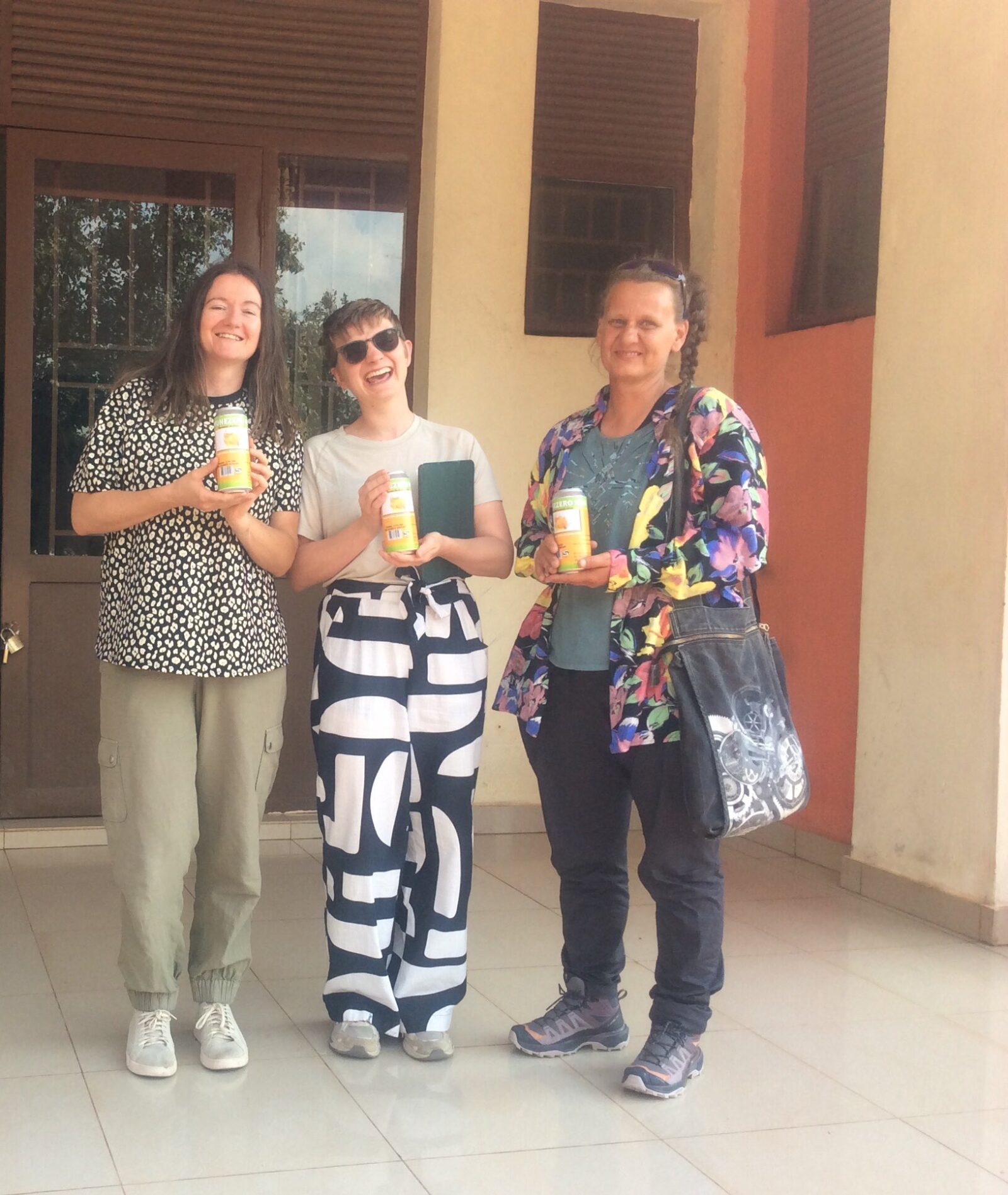
As the world prepares to celebrate the International Day for Biosphere Reserves (3 November 2025), Rwanda’s spotlight turns to the lush hills of the Gishwati-Mukura Landscape Biosphere Reserve, where women beekeepers are building a buzzing model for sustainable development, conservation, and empowerment.
This week’s celebration (3–4 November 2025) will be especially meaningful for them. During the Biosphere Day events, women in the UNESCO Women for Bees programme will receive modern cookstoves to help reduce pressure on surrounding forests. They will also receive protective suits, gloves, boots, and Kenyan-style beehives as part of the programme’s second phase.
The initiative aims not only to make beekeeping safer and more productive but also to link everyday livelihoods with environmental protection strengthening the delicate balance between people, bees, and forests.
A Global Sisterhood in Beekeeping
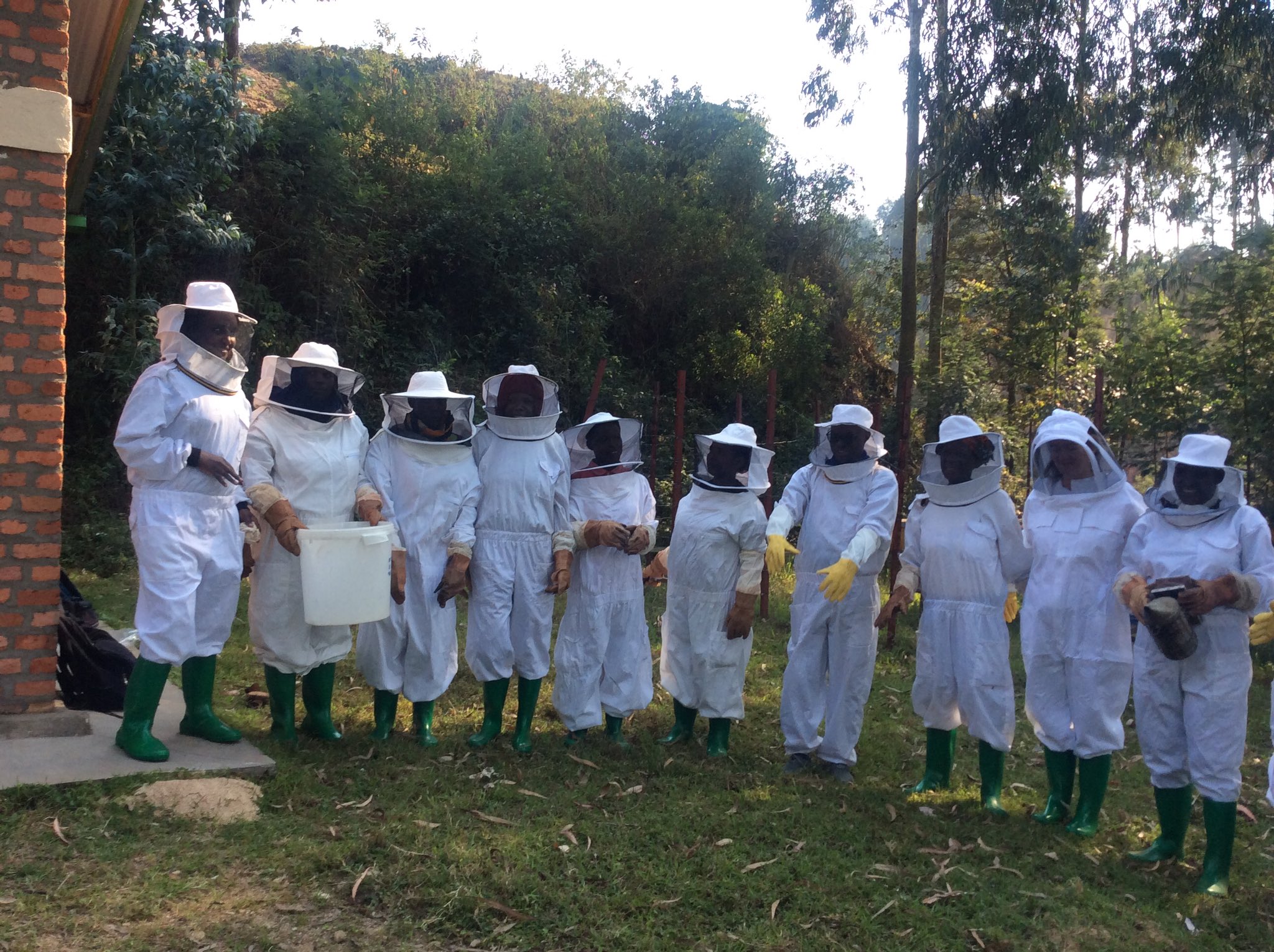
The story of this moment traces back to August 31–September 5, 2025, when three women crossed continents to share their expertise with Rwandan beekeepers. Oriane Martin (France), Ivana Kovacevic (Slovenia), and Nadine Schuller (Austria) spent a week in Rwanda, mentoring 33 women from cooperatives working in the Gishwati-Mukura Biosphere Reserve.
The trio, all accomplished beekeepers and trainers, came through the UNESCO Women for Bees programme, implemented with the Rwanda National Commission for UNESCO. Their mission: to exchange technical knowledge, strengthen leadership, and support women as champions of conservation and sustainable enterprise.
From the first day, the sense of global sisterhood was unmistakable. The visitors joined Rwandan cooperatives at apiaries managed by local women (COAPIRU, CODASE, and COVED) sharing techniques, stories, and laughter despite the tropical heat.
The week began with discussions on women’s leadership in beekeeping, followed by honey tasting sessions, product development workshops, and a marketing masterclass led by Oriane Martin, a beekeeper and entrepreneur from France. Later, Ivana Kovacevic from Slovenia guided a technical session on hive expansion, queen rearing, and swarm prevention, while Nadine Schuller from Austria focused on connecting beekeeping with science and citizen observation.
“At first, I remained an observer,” Oriane recalled. “Then I started to see familiar mechanisms and shared how we do things in Europe. Together, we identified new practices that could be useful to them. This mutually enriching experience really gave me a sense of accomplishment and happiness at being part of a program bigger than myself.”
Learning from the Bees and from Each Other
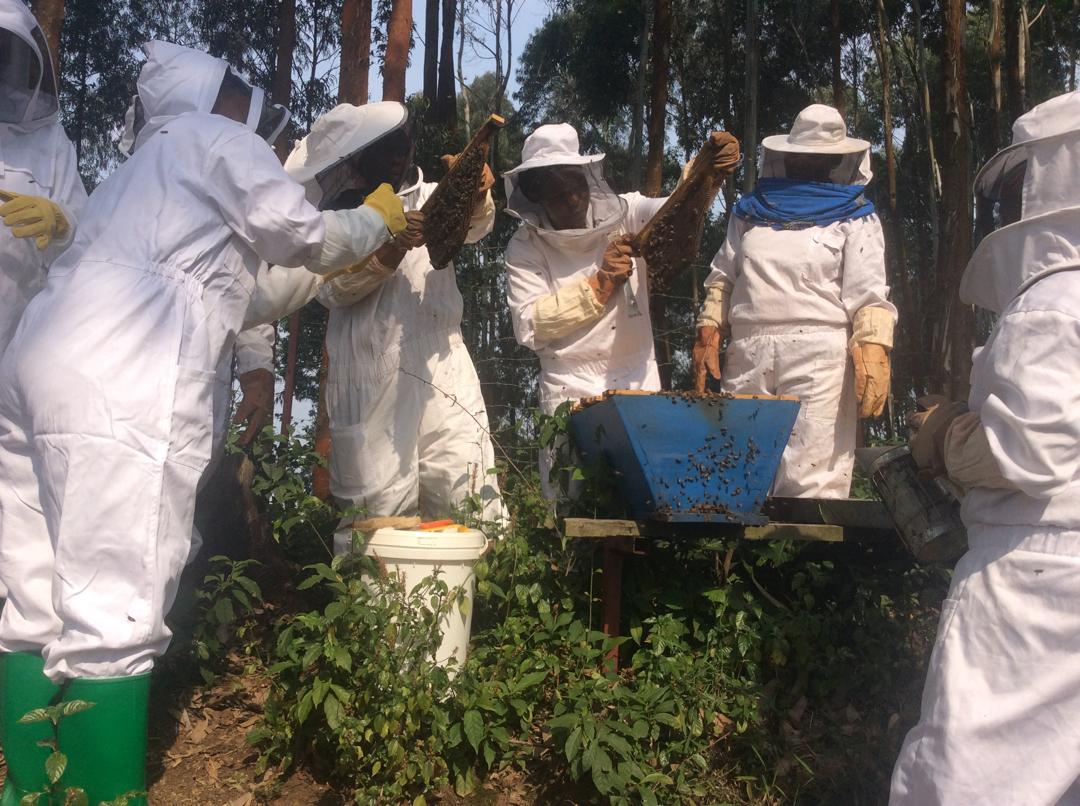
For Nadine, the most moving moment came on the final day.
“On the last day, we decided to hold one more theory session for all 33 participants- three extra hours after an already intense week,” she said. “I thought only a few would show up, but everyone came and stayed until the very end. The women were tired, but still so eager to learn and to share their own knowledge and stories. There was a real sense of curiosity and a strong community that had formed through beekeeping.”
Ivana, from Slovenia, said the Rwandan beekeepers’ close connection to the forest left a lasting impression: “In Gishwati-Mukura, bees are part of the forest’s rhythm. What touched me most was how the women understand that protecting trees means protecting bees and protecting their families’ livelihoods. It’s a lesson I will take home.”
From the Apiary to the Market
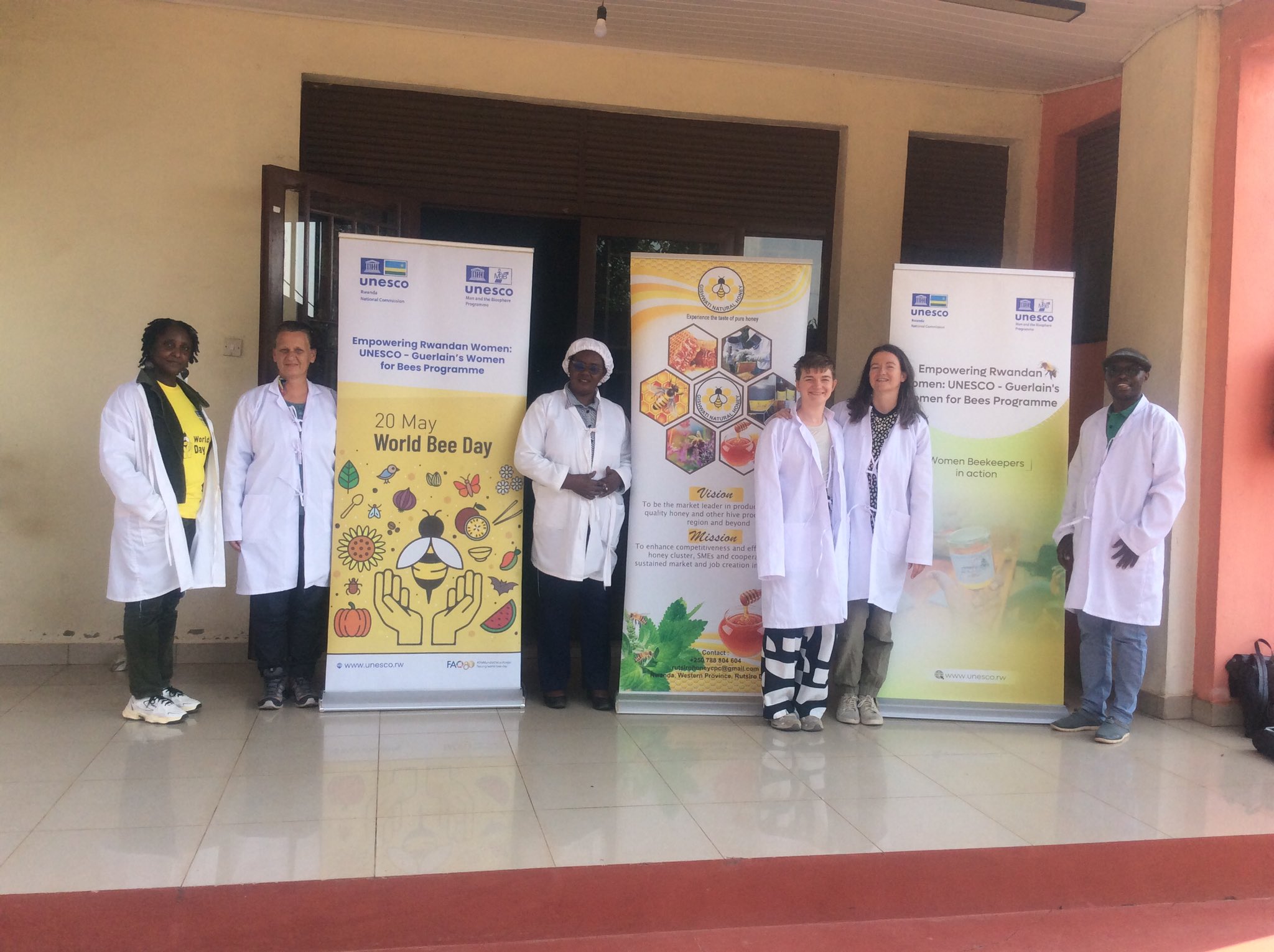
Throughout the week, the focus extended beyond hive management. The cooperatives explored how to turn their honey and beeswax into diverse, market-ready products like candles, cosmetics, or even honey wine inspired by Oriane’s examples from France.
At Rutsiro Honey Ltd., the visiting experts met with Chantal, who leads honey processing and product development. Together they discussed packaging, branding, and how to create a Rwanda-specific honey identity rooted in the biodiversity of the Gishwati-Mukura Biosphere Reserve.
Beyond production, the exchange also aimed to strengthen entrepreneurial skills, helping women understand pricing, value chains, and new market opportunities, including the idea of a local sales café and community hub where visitors could taste and purchase honey products.
A Growing Hive: Next Steps and New Tools
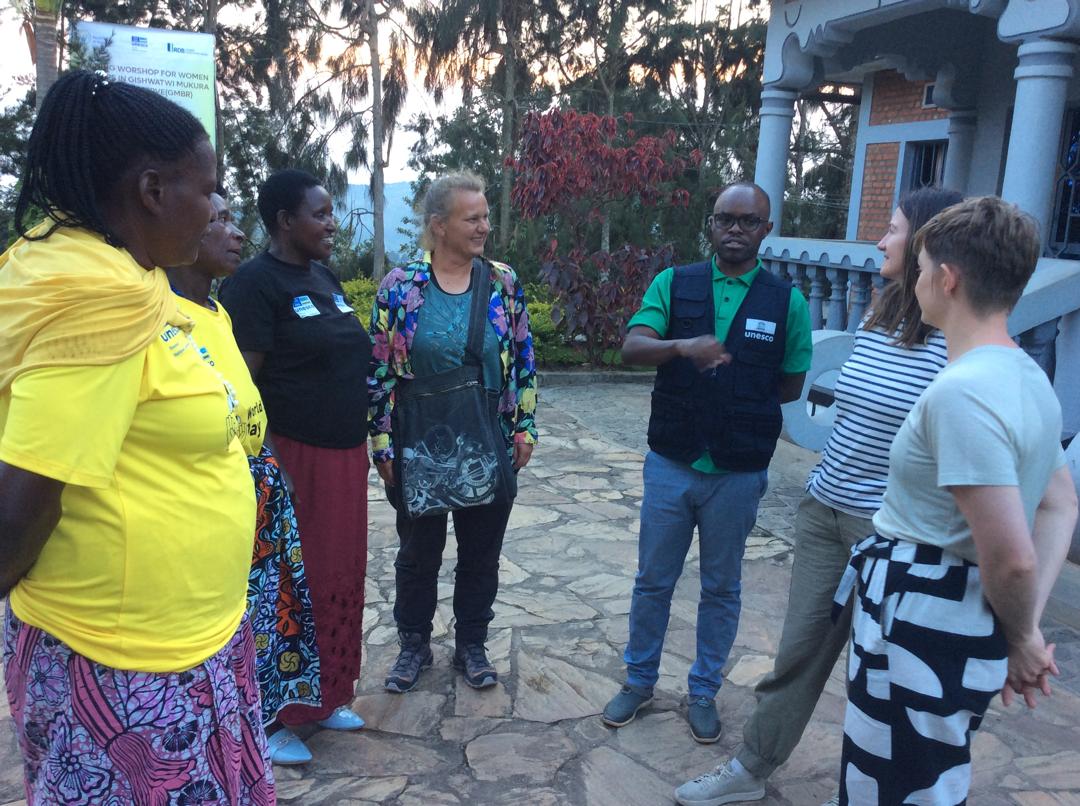
According to Ir. Dominique Mvunabandi, Director of the Science, Technology and Innovation Unit at the Rwanda National Commission for UNESCO, the visit marked the start of a new phase of the project.
“The training showed how far these women have come since the program began in March 2023,” he said. “They have moved from basic skills to advanced topics like queen rearing and seasonal management. But most importantly, they now see beekeeping as a professional craft.”
Dominique added that while the women have already received protective suits, gloves, and boots, this Biosphere Day will be the first time they receive modern cookstoves, a tool directly linked to the conservation goals of the Biosphere Reserve.
“These cookstoves reduce the need for firewood, helping protect the forest, the same forest that sustains the bees,” he explained. “It’s all part of the ecosystem restoration efforts in Gishwati.”
He also shared that plans are underway to launch the Gishwati Apiculture Training Center, offering short courses on beekeeping, product development, and branding to both Women for Bees participants and other Rwandans interested in apiculture.
Bees, Forests, and the Future
From the buzzing hives of Gishwati to the laboratories of Rutsiro Honey Ltd., this partnership has already left a mark. It embodies a story of connection between continents, between women, and between humans and nature.
As Rwanda celebrates Biosphere Day, the Women for Bees program continues to grow like a thriving colony, each participant a worker in a shared ecosystem of empowerment. The forest hums with renewal, and so do the women, whose courage and curiosity have made the Gishwati-Mukura Biosphere Reserve not only a refuge for bees, but a symbol of hope for sustainable development.
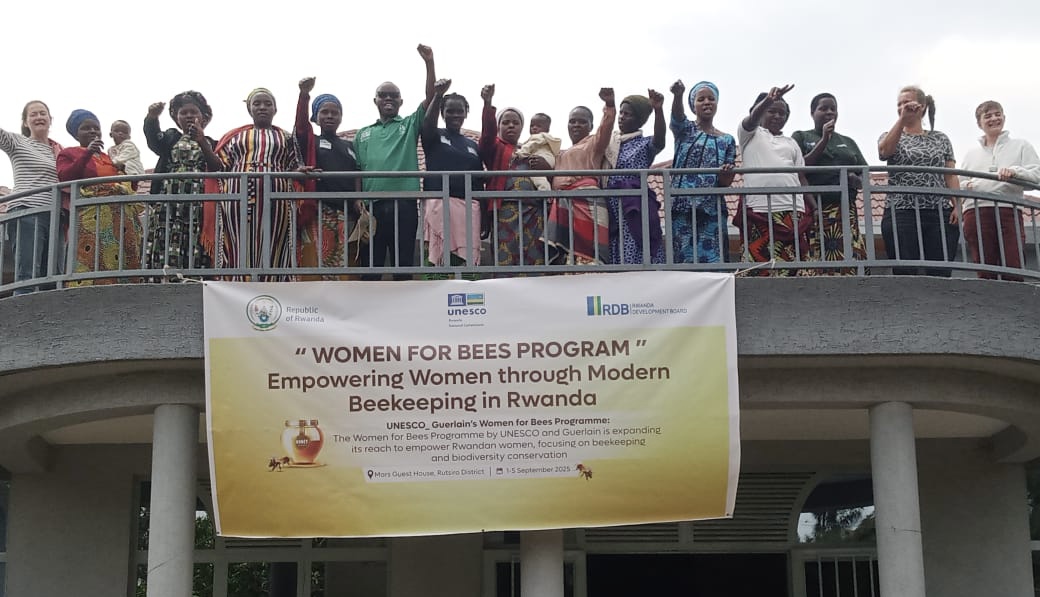
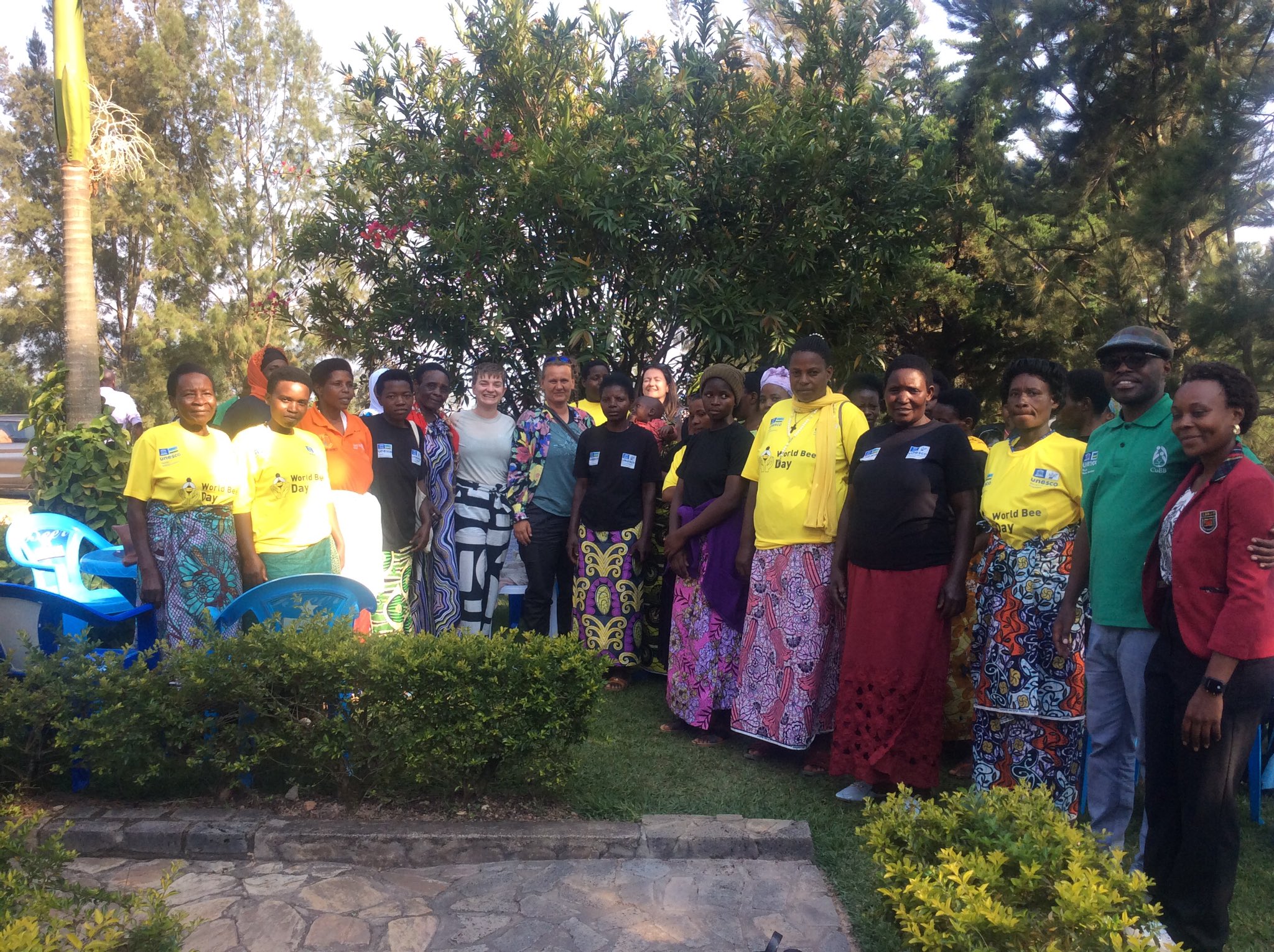
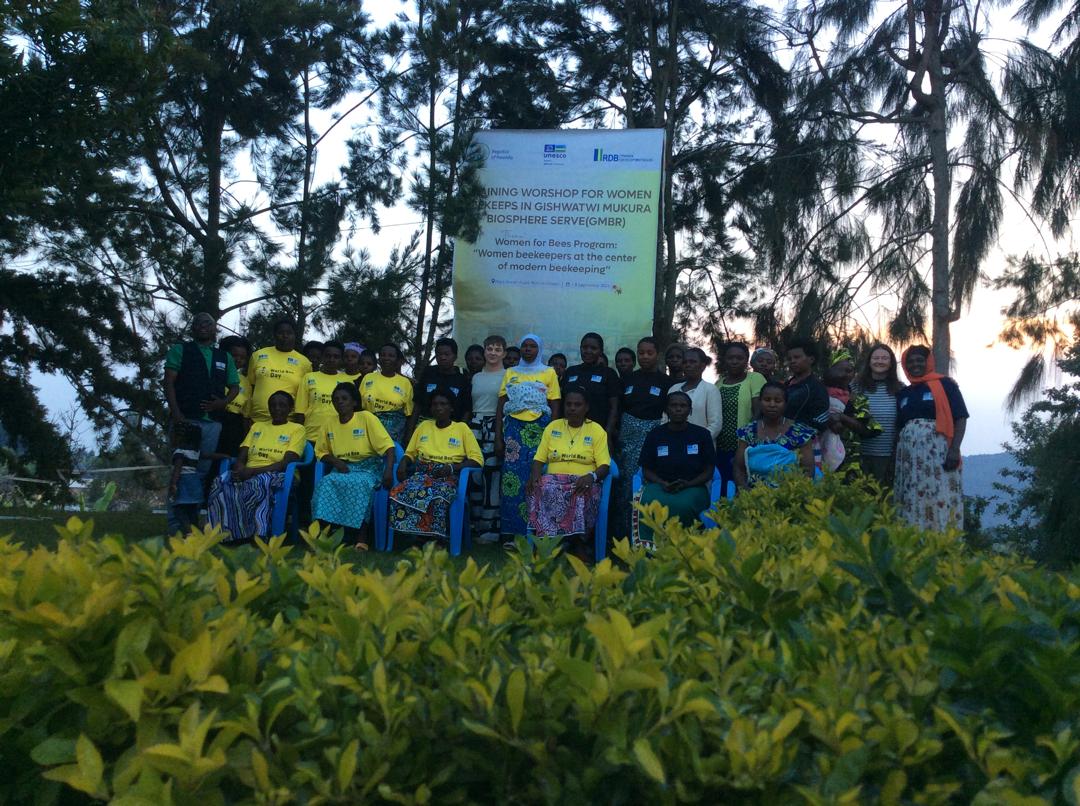
Trending Now
Hot Topics
Related Articles
Enroll Now Before 31 December 2025: International German Language Exams Launch in Rwanda
Rwanda will host the European Consortium for the Certificate of Attainment in...
Rwanda Validates Environment and Climate Change Mainstreaming Strategy 2024–2029
This Tuesday, 23 December 2025, the Rwanda Environment Management Authority (REMA), in...
Rwanda Opens New Doors with International German Language Certification
Rwanda has taken a significant step in expanding access to global education...
Rwanda Expands Education Partnership with Zimbabwe to Include Model Schools
Rwanda has expanded its education cooperation with Zimbabwe to include model schools,...






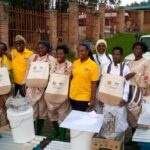

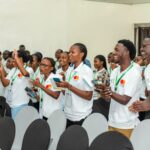
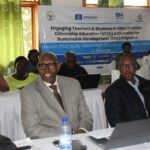

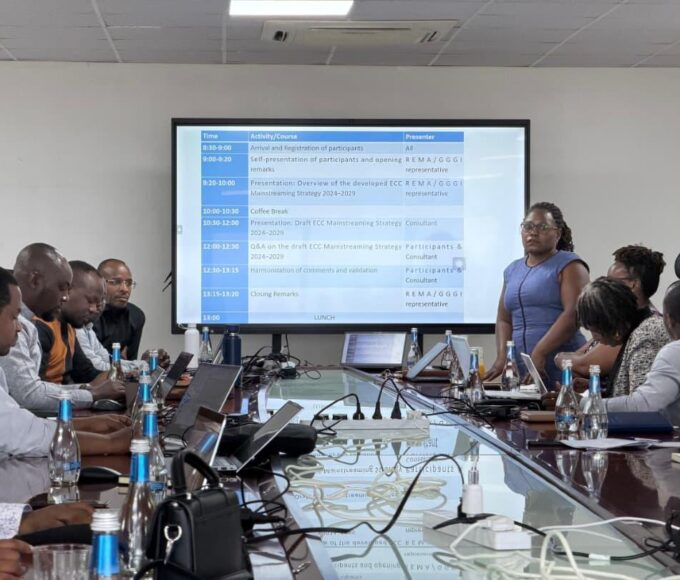


Leave a comment